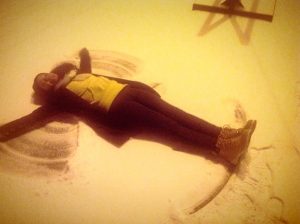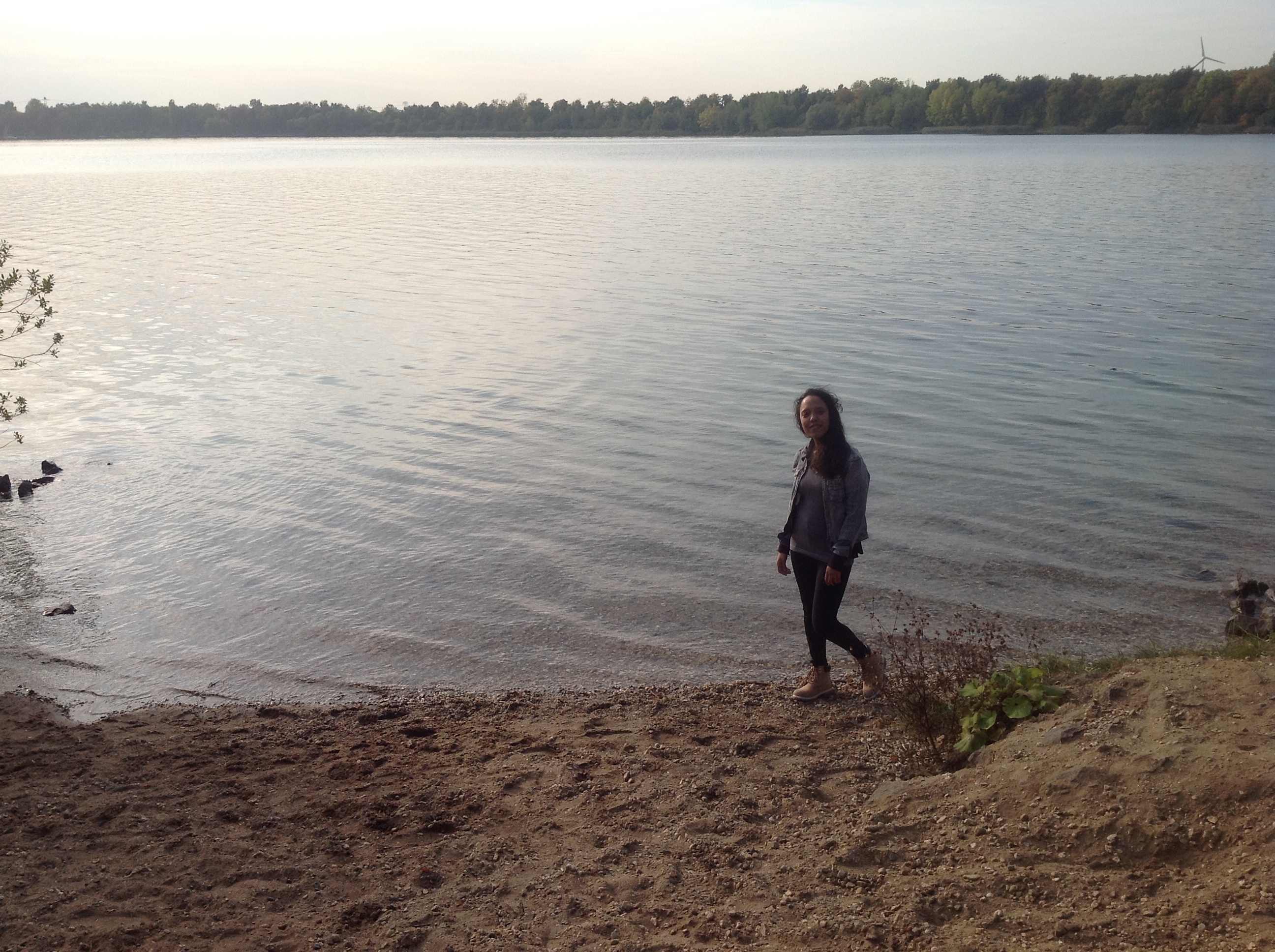Updated: 16 June 2016
Pre-departure:
I’ve always wanted to do a semester abroad. After the success of my summer school experience in Berlin in 2013 (also through the PGIO), the next step was a semester of study in a new city. Leipzig was a great choice for me.
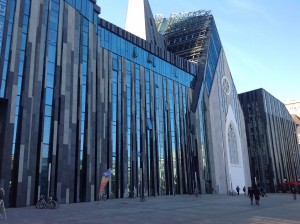
Pre-departure is definitely the most important part of any trip. One can never be too prepared when it comes to travel. When working with the DE Consulate, I highly recommend booking your visa appointment as early as possible. The Consulate’s website also has a page where they explain exactly which documents to prepare in preparation for your appointment. Unfortunately for me, proof of acceptance was not enough. This is both curious and frustrating as the Consulate seems to treat different students differently. Hence, I offer one significant tip: make sure you are in contact with your coordinator – both at Stellenbosch AND at your institution abroad. The assistance of Jane Moros (my coordinator at Leipzig University) was essential to receiving my visa on time as the Alien Office was inundated with paperwork thanks to the influx of migrants into Germany in September. Another tip: keep abreast of all of the headlines in the country you’re about to enter so that you can take time delays (with regard to receiving important documents) into account.
Make a list of everything that needs to be done before you leave. That includes documents required by the consulate for your visa as well as what you’re packing into your suitcases. For your luggage, pack light! With winter approaching, I packed the essentials as well as thermal underwear and a beanie. South Africans don’t like getting cold. Also, get new ID/Passport size photos taken. You will need several of these for various different reasons when arriving at your new institution. Don’t be afraid to contact staff members at both institutions about any queries you may have. I prefer to come across as overly enthusiastic (read annoying) than to go into an adventure unprepared.
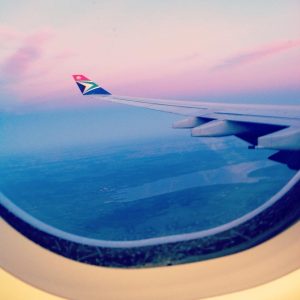
Flights: When it comes to airline tickets, I prefer to use Travelstart. They’re friendly and have great prices, especially for the students. In addition to that, their offices are based in Cape Town (about two blocks) from the DE Consulate, so visiting them was convenient and they were incredibly helpful with any queries that I had. Regarding arrival at the airport, make sure your arrive 2 hours before your flight! You don’t want to arrive late and get put on the waiting list like I did. It’s unnecessary stress that no one needs, so arrive early so that you can relax and enjoy the anticipation of the exciting, new adventure you’re about to embark on. When it comes to flights, also be aware of your connections and departing times. Upon arrival at OR Tambo – my connection to Munich – I went straight to my check-in point and waited at the gate. Another tip: Buy a folder pocket to keep all of your important documents on hand when arriving at customs. Some of these documents would include your passport, your formal letter of acceptance and your binding reservation for your apartment.
Having Euros on hand is advisable, but not entirely necessary as exchange bureaus in SA often charge hefty fees so that they can get their commission, but drawing money at an ATM in the Munich airport was easier for me as the money was immediately drawn as Euros and I didn’t have to give a third party a commission fee. Speaking of which, do NOT forget to call your bank before you depart for your trip. I called ABSA in advance and the call took about 15 minutes to notify them of my departure dates. I can’t overemphasize how important this is as the last thing you want is to draw money in a foreign country and find that your card has been blocked because your bank in SA thinks it’s fraudulent activity and doesn’t know it’s you. Also bear in mind that your bank at home will charge a lot more for transaction fees when you draw money, so it’s best to draw large amounts at a time. Besides a credit card, it’s also advisable that you make use of other forms of money such as travellers’ cheques etc.
Experience at the host institution:
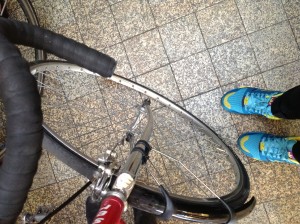
Upon arrival I found it relatively easy to navigate Leipzig from the airport to my apartment. I was lucky enough to have a buddy from the buddy programme there to help me. This is a useful thing to do: before your departure, browse the host institution’s website and apps for a buddy if they have a buddy program. These students are helpful and will do all they can to assist you in your arrival.
Leipzig University welcomed me with open arms, especially the Global and European Studies Institute (GESI), which I am now a part of. Konstanze & Stephan, my coordinators, were incredibly helpful with helping myself, as well as the other international students, with settling in and doing the necessary admin required for registration. Before my departure for Leipzig, they already sent me numerous e-mails congratulating me on my acceptance and giving me important information about the particulars of my trip i.e. admin. We had a welcoming programme for the first two weeks in which we were guided through the city as well as the university, the faculty and how student life works in Leipzig.
Being part of GESI as well as being an exchange student means that I am able to choose my modules as long as they are in accordance with the amount of credits I require from Stellenbosch. One of the main reasons I decided to go on exchange is because Leipzig offers some modules which aren’t available at Stellenbosch. Thus, through their partnership, I have been able to enroll in modules that I otherwise would not have had the change to experience and enjoy. At present, I am studying EU Neighbourhood Policy (English), as well as Teutoslavia with Dr. Stephan Tröbst (German) and Media in the US and the EU: a comparative perspective. The diversity of the subject matter studied in these modules allows me to take a broader, more explorative approach to global studies. In this way, I get to look at current topics of interest, such as EU Neighbourhood Policy, in addition to taking a historical approach to understanding the Europe of today by looking at it through a historical lens (Teutoslavia focuses on the Hitler-Stalin Pact and its influence on modern day Europe). Additionally, doing modules in German has forced me to improve my language faster and to do a lot of reading, which I enjoy.
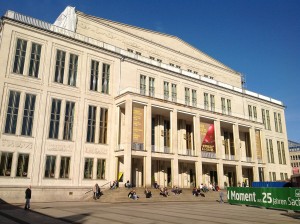
While my German-speaking classes comprise mostly German students, my English module is more diverse, with students coming from Spain, Estonia, Russia and as far as Australia and Brazil. There is no lack of diversity and no lack of interest in your background as an individual and what you have to offer the class you’re in. Thus, participation is key. You’ll get as much out of this experience as you’re willing to put in. The GESI always encourages us to attend welcoming events, boat trips and academic seminars so that we able to enjoy the city as well as the course of study. As a foreigner in a new, strange city, sometimes it may feel easier to keep to yourself, but why do that when you can get to know the new people you’re studying with? My group of GESI classmates is friendly and always excited to do group activities. On the 9th of October, some of us even attended the Leipzig Lichtfest, a candle ceremony celebrating the march for the end of the separation of the German people in 1989 (just before the Berlin Wall came down). It was beautiful and the memory, shared with other people, is something I will always cherish. It’s only been 3 weeks and I can’t wait to see what the rest of my experience has in store.
Arriving Home :
My final weeks in Leipzig can be summarised in two words: a blur. The high of my new adventure had dipped to a low and I was dismayed upon realising I have to return home. It’s not that I don’t love my home. I just can’t believe how close I’ve gotten to so many new people, the friendships I’ve forged, the city I’ve called home for four months and the language I’ve enjoyed expressing myself in for the past semester. Connections do that to you – they attach you to people you didn’t know existed until a few months ago, who’ve now become such an essential part of your days. During my time in Leipzig, I’ve learnt so much and now, in my final weeks in this historical city, I have one thing on my mind: errands. Closing accounts, handing in student cards, returning keys and making appointments with the apartment’s Hausmeister, as well as meeting with members of the university’s administration were all things that needed to be done.
That said, the trip home was successful. One train trip, three flights and a car ride later, I was home. I was so excited upon arrival at Cape Town International, seeing my parents with huge grins on their faces: their daughter is home. Unfortunately, though, the joy didn’t last long. Around mid-January – while still abroad – I managed to sink into a state of nothingness and what can only be described as dire fatigue. I thought this would dissipate once I got home, that it was just a low because I didn’t want to return – I’d had so much fun after all – but it wasn’t the case. As it turns out, I was utterly burnt out. At the time I didn’t realise it, but upon reflection, it made a lot of sense: the people I’d met, my fellow classmates, started their academic year in October. By this time, I’d already had one hardworking, successful semester behind me, as well as a two week winter school in which I’d both participated and assisted as a demi. Because my exchange included only three modules, I thought the workload wouldn’t be heavy. I’m a conscientious student, so, to be honest, it really didn’t feel like hard work. Then it hit me. The FATIGUE. While my appetite was still intact, the fatigue coupled with lack of concentration and mild depression sent alarms off in my brain. I’m burnt out. Thus, my adjustment to life back at university – back home in general – wasn’t pleasant.
Because I no longer have modules to complete – only a thesis – I’ve had ample time to get it done, yet no motivation to get going. Since I find that I’m most productive when I have a lot on my plate already, the fact that I have no more classes to attend is, ironically, not providing me with any incentive to get going. Hence, the biggest lesson I’ve learnt from my experience abroad is this: because tertiary institutions abroad don’t follow the same calendar as Maties, or any other South African institutions for that matter, it is imperative to prepare for potential burnout. The overlapping academic calendar is something to be aware of, not to mention the amount of work that needs to be done, both while you’re away and back in SA. Upon return (early Feb), Stellenbosch’s first semester was already underway and, while I didn’t have classes to return to, the thought of that being a reality is somewhat daunting. That said, I don’t regret my exchange for one second. The experience is priceless and I’ll cherish the memories forever. I even received an e-mail from Jane Moros, my exchange coordinator at Leipzig, sending well wishes for the forthcoming year. It’s that kind of warmth and generosity that I’ll always remember. Both at the Stellenbosch PGIO and at my partner institution, I’ve met incredible people who care about their students’ welfare and happiness. Suffice to say, it has taken a few months for me to get my groove back, my motivation has returned and I’m ready for this final step in my academic career: completing my postgraduate studies on a high.
I cannot express enough gratitude for this, Stellenbosch. For that, and everything you’ve done for me and for all of your students, I thank you.
Alive and well (and utterly grateful)
Olivia xx
